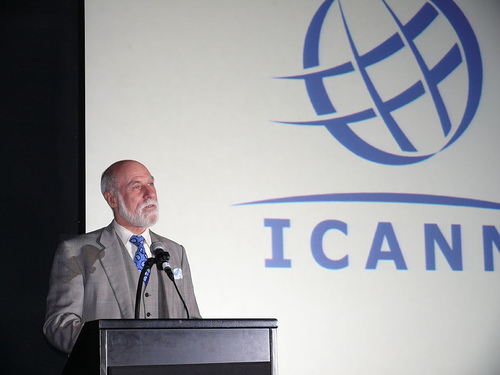US loses confidence in ICANN

The US National Telecommunications and Information Administration (NTIA) has put the Internet Corporation for Assigned Names and Numbers (ICANN) on notice, indirectly stating that it is no longer fit to deliver the new Internet Assigned Numbers Authority (IANA) functions proposed by the global community.

"Father of the internet" and former ICANN board chairman Vinton Cerf
(9-vint-speaking image by Veni Markovski, CC2.0)
IANA functions — managing the domain name system root, assigning and coordinating IP and AS numbers/addresses and managing internet protocol numbering systems — have historically been delivered by ICANN under a contract it has with the US Department of Commerce.
With the contract expiring, NTIA, which is an agency of the US Department of Commerce, consulted the public on what would be necessary in a renewed contract and, following this feedback, released a Request for Proposal (RFP) for a new IANA functions contract.
The proposed IANA contract has several new provisions, including increasing consultation and reporting requirements for greater transparency, separating policy from implementation and better conflict of interest policies.
In a surprise move on the weekend, the NTIA cancelled the RFP process, stating that "we received no proposals that met the requirements requested by the global community", which would include ICANN's own proposal.
Although the NTIA considers ICANN's proposal to be insufficient, it has essentially told ICANN to come back with a better response, agreeing to allow it to continue to deliver existing IANA functions until September and that it will reissue the RFP at a later date.
ICANN has a history of controversy with the US Government, notably over the implementation of .xxx domains, and its unwillingness to allow generic top level domains to be vetoed by any government.
The greater scrutiny of ICANN's proposal is in contrast to the renewal of the contract in 2003. At the time, the Department of Commerce was criticised for awarding the contract without a proper tender process.